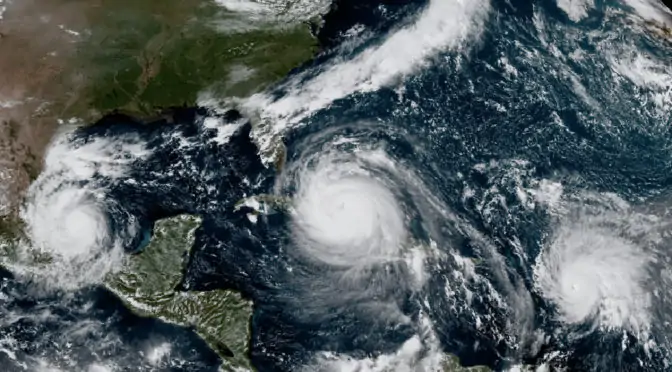The April and May 2018 Chinese successful deep sea explorations in the South China Sea lead to novel future possibilities, including a rising uncertainty in the security and resource sectors for all actors, states and companies alike, involving a complete redrawing of the influence map, of the capabilities needed and relatedly of the strategies and policies to develop and implement.
Search results for: antarctic
The Deep-Sea Resources Brief
Human societies currently face dwindling resources and rising competition for them in the contemporary “resources order.” Thus, besides and in accordance with other ways to handle this challenge, new types and sources of resources are increasingly valuable and can make a strategic difference for polities, as well as for humanity as a whole. Meanwhile, if we are to ever learn from our worrying present, we must also, continuously, make sure that the extraction and use of those new potential resources will not have any unfavourable impact on the planet and its ecosystem, including this biodiversity to which we belong.* As has now been known since the end of the nineteenth century (Ifremer, les Nodules, 2012), mineral resources lie on the …
Continue reading “The Deep-Sea Resources Brief”
Climate Change: the Long Planetary Bombing
Executive summary The current and coming impacts of climate change are becoming equivalent to those of a long bombing. This can be seen with the damages wrought in Texas, Louisiana and Florida by hurricanes Harvey and Irma. In a few days, the total costs of these disasters has amounted to at least 290 billion USD, …
Continue reading “Climate Change: the Long Planetary Bombing”
The Anthropocene Era and Economic (in)Security – (1)
The summer of 2016 has been a major pivot in the history of mankind. In effect, on 30 August, the definition of the current geological epoch as the “Anthropocene Era” has been officially validated, during the 35th International Geological Congress, in Cape Town, South Africa (Noel Castree, “An Official Welcome to the Anthropocene Epoch”, RD …
Continue reading “The Anthropocene Era and Economic (in)Security – (1)”
The UAE Grand Strategy for the Future – from Earth to Space
The United Arab Emirates (UAE) is devising a grand strategy to ensure its global security during the 21st century. In 2010, the UAE’s government published the “UAE Vision 2021”, establishing the will “to ensure a sustainable development”. In 2011, the UAE’s political authorities created a national marine environment research centre. In 2014, they created the …
Continue reading “The UAE Grand Strategy for the Future – from Earth to Space”
Alberta Mega Wildfire and the United Arab Emirates Security
In April 2016, some important oil-producing Middle Eastern countries, as the United Arab Emirates, Kuwait, and Iran, were present among the representatives of more than 155 countries headed to the U.N. in New York to ratify the international climate accord negotiated during the Paris COP 21 (“UAE vows to make climate deal work”, The National UAE, April 23, 2016). Less than a month later, from North America to Russia, places especially vulnerable to climate change are shaken by immense wildfires. Prominent among these extreme weather events, is the mega wildfire that devastates the region of Fort Mc Murray, in the Alberta state of Canada (Bryan Alary, “Fort Mc Murray blaze among “most extreme” of wild fires says researcher”, Phys.org, May …
Continue reading “Alberta Mega Wildfire and the United Arab Emirates Security”
The Red (Team) Analysis Weekly 197 – Unstable Equilibrium in the Middle East
Each week our scan collects weak – and less weak – signals… Read the 2 April scan → World – Three articles this week are particularly interesting, in themselves but also when read together. Amal Mudallali “Sorry, Obama: The Arab World No Longer Needs America” for The National Interest, focuses on the pride and “new Arab spirit” resulting from the Saudi-led …
Continue reading “The Red (Team) Analysis Weekly 197 – Unstable Equilibrium in the Middle East”
The Red (Team) Analysis Weekly 195 – Tunisia Museum Attack, Global Jihadi Threat and Public Indifference?
Each week our scan collects weak – and less weak – signals… Read the 19 March scan → World – The deadly attack on the Bardo museum in Tunisia, on 18 March, reminded the world that the Salafi-Jihadi threat is far from being overcome, despite some lassitude displayed by crowds and media over such attacks. One of the interesting signals to notice here, is the small number of crowdsourced articles referring to the attack. Only three articles found their way in The Weekly, when the casualties are far more important than those of the Charlie Hebdo attacks in Paris or of the shooting in Denmark, to say nothing of the impacts to Tunisia’s economy and more broadly polity, and in terms of spread of Jihadi attacks, threat …
Arctic Fusion: Russia and China Convergent Strategies
Is the Arctic becoming a Sino-Russian lake? The question must be asked, because of the way these two Eurasian giants are gaining a massive and coordinated influence in the whole Arctic region, taking advantage of the geophysical changes caused by global warming (NASA, Global climate change). For example, following the historic $ 400 billion deal between Russia’s Gazprom and China, through which Russia will supply China with oil and gas for thirty years, it was announced that companies of the two countries were looking forward to explore and develop the Russian Far East, which is part, or is very close to the Arctic and subarctic region (Ding Ying, A Gas bond, energy cooperation will serve as a new link between …
Continue reading “Arctic Fusion: Russia and China Convergent Strategies”
Extreme Environments Security
In its Global Strategic Trends – Out to 2040, the UK Ministry of Defence, Development, Concepts and Doctrine Centre (DCDC), underlined that “resource and the environment” was one of the major dimensions shaping the future. Notably, the highly likely growing resource scarcity would lead to strengthened interest in what they call “Extreme Environments” – i.e. the …









